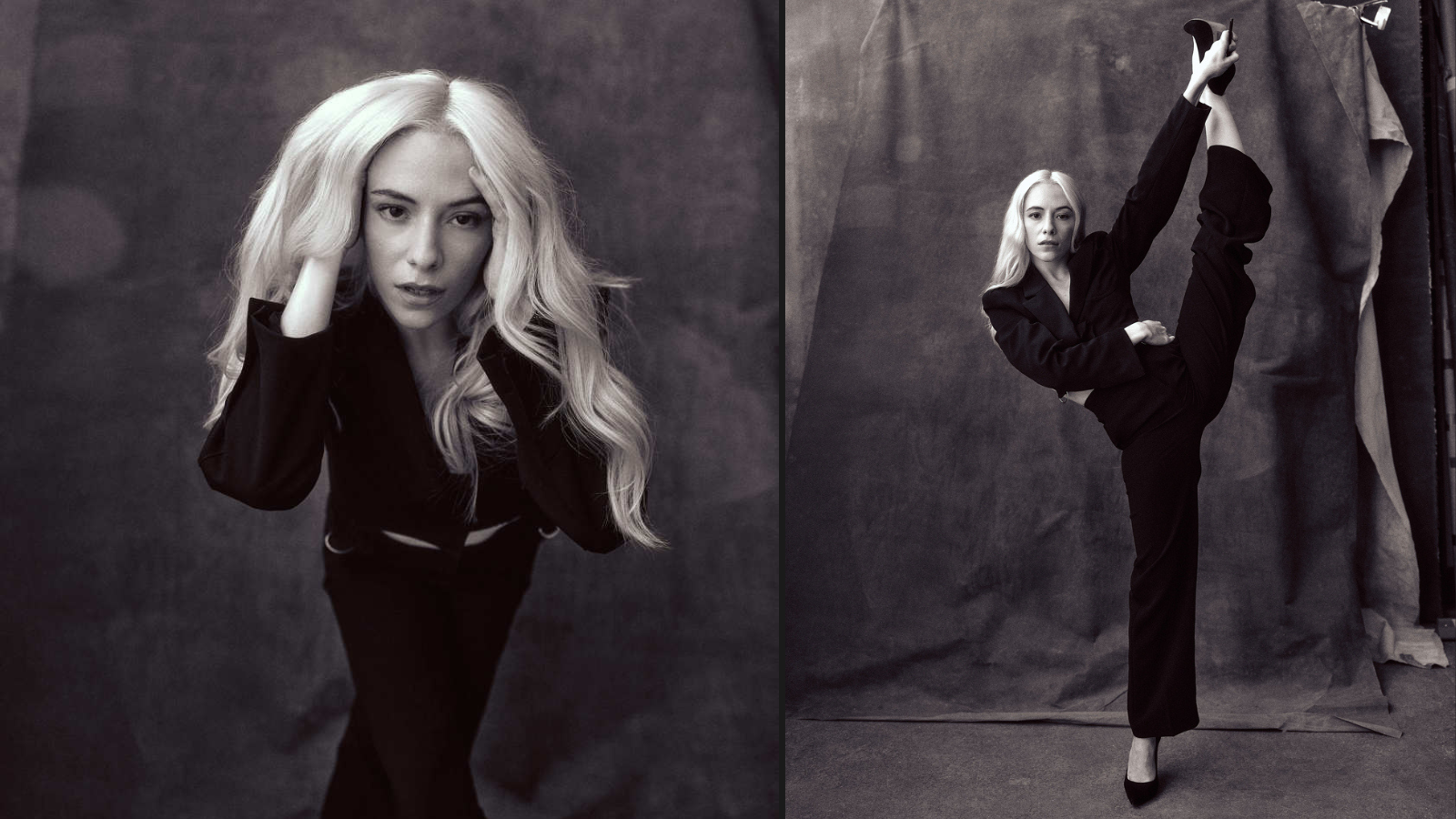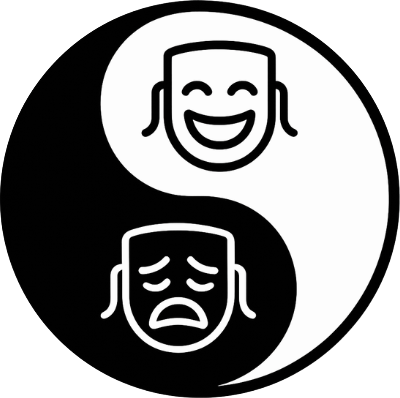Behind the Breakout: Bianca Melchior
Bianca Melchior is a true triple threat.
Before making her musical theatre debut in Toronto's 2019 run of Bend It Like Beckham: The Musical, Bianca cut her teeth as the inaugural Female Best Dancer at The Dance Awards and as a supporting vocalist to Canadian pop star Alessia Cara. A few years later, she was acting in Apple TV+'s Schmigadoon!, starring in and choreographing Delacey's music video for "Too Poor to Live in LA", and soon, she'll be gracing the silver (or green?) screen in the upcoming two-part film adaptation of Wicked.
Here, we speak to Bianca about doing the things that scare us, the role of trust, and managing rejection.

Triple threats are a fascinating breed of performer. Can you walk us through how you came to each of these crafts?
Bianca Melchior: Music was probably my first love because I grew up in a household where both of my parents sang and played a lot of music. My dad actually writes his own music, so I can recall very vividly growing up at the house and hearing my dad on a Saturday or Sunday morning. I've had these songs that he's written in my head my whole life. So I think that's where singing and music in general were born for me, although I never trained in it formally until 2014 or 2015 because it was the thing that I was the most shy to share.
When I was about 12 years old, I took my first dance class. I was never really interested in dance – I did an after-school gymnastics programme, and when I was younger, did swimming and skating. But two of my best friends in elementary school ended up dancing at the same studio together, and they would come to school and show me what they were learning. I think, secretly, I was a little bit jealous because I was like, "You guys are hanging out after school!". So I ended up taking a class, and I just loved it. I joined the recreational programme first and was taking jazz, tap, and acro. When I joined the competitive programme after that, it was mandatory to take everything – hip hop, ballet, contemporary, lyrical. I moved through the competitive circuit throughout my years in late elementary school and high school.
I was very passionate about school as well. If I had gone the academic route, I would have loved to be a lawyer. But I knew I had a passion for dance, and I knew that my body wouldn't allow me to do it forever and ever. So I thought to myself, "Do I want to spend four years of my life training [at university], or do I want to just dive in and see what happens?". I ended up choosing [the latter], and I'm glad I did because I started working and having a career.
Acting came after that. There was a period of time when I was feeling a bit stale with dance. A lot of friends who I'd grown up dancing with were starting to take acting classes, and I'd never really considered it before. It just shows you the power of community! So I popped into a film and TV class and I loved it. It was just a different way to story-tell. And I think starting to audition and pushing into acting – I think I became a better dancer and singer for it. It taught me more about character and story and different perspectives on the world. I think it really grows your empathy bone.
Given you haven't been acting for decades, what do you think enabled you to develop so quickly?
BM: Growing up as a dancer – especially in the competitive circuit – it wasn't just a casual thing. It was 20-30 hours a week and missing school for competitions. So, I think the discipline I learned from that is something I carried into acting. I think also my curiosity for personal growth and spiritual growth. I think you can do a lot of that through art. I think art is therapy.
Maybe, too, the older you are, the more life experience you have, and the more you know yourself – for the most part. You know what you like and what you don't like, and what you're interested in and what you're not. I think having that information is helpful because it's easier to say yes/no/maybe. You know how to place things in your life.
On that, given you can work across so many disciplines, what determines what you say yes to?
BM: I think it's what scares me. I'm in the pursuit of trying to be courageous as I build this career. I don't want to stay comfortable, and I don't want to stay safe. If I'm like, "I don't know if I can sit at that table, but I think I can", I'm like, "Okay, I've got to go there". That's where I'm going to grow the most. And that's where I'm going to have the most fun.
We know you can't say a whole lot about the upcoming Wicked films, but perhaps more generally, how do you mentally prepare for high-stakes performances?
BM: First and foremost, I trusted this feeling that I've always had about Wicked – that I've wanted to be a part of it in some way, shape, or form. Seeing it throughout the years, every time I would leave the theatre, there would be something in me going, "This is buzzing in a way that's not just like, 'I really love seeing that show'. It's cellular. I feel I need to be injected into this world somehow". So, first and foremost, I had to trust that I belonged there. I think that's the most important thing when it's a really big project.
All this to say, if I were to say anything to anyone, when you feel something – even if it's scary, even if it seems unattainable, even if it seems too big – to trust that it's there for a reason. Trust those innate feelings.
Then I think sometimes we put big projects on a pedestal, and we need to zoom out and be like, "Okay, we're not doing brain surgery here". It's art. It's fun. I was going to rehearsal every day, getting to dance to some of my favourite music, and learning all the little sub-parts of the harmonies. It was so much fun. I think I just tried to stay true to those things as much as I could so that I could embrace the experience.
Have you developed any routines or practices to protect your well-being between shows/shooting days?
BM: I definitely have modalities and things I turn to when I need them. It's important for those things to be a practice because it's hard to expect certain modalities to show up for you when they're not consistent in your life. That said, what I've learned about myself is I don't think I'm a person who can stick to things rigidly. So, I don't have specific routines. I try to be a little bit more loose with it.
As far as modalities go, breathwork has been a big one for me, and also mantras. It doesn't have to be anything poetic, but when I notice that I'm stressed about something – I'm not trusting that the script or choreography is in my body because I made a little mistake on something – I close my eyes for a second and breathe and say, "I trust my body. I know this. I practised this". That's really made a difference. I also like making playlists for different characters or genres and listening to them to help ground me in whatever world I need to be in.
How do you think about managing rejection these days?
BM: I would be lying if I said that it never affects me. And I don't know if it's the goal for it to never affect us because I think [that's how] you know it matters. So, first, just holding space for that. If I feel rejection is bringing feelings of sadness or making me question my worth, I have to sit with that. I have to be honest with that. I can't just ignore it or "positive" my way through it.
I also think about what a friend said to me once: "Rejection is divine redirection". I try to carry that as well. I don't think the universe hands us things unless the timing is right. And actually, I remember watching a Jay Shetty interview with Cynthia Erivo, who plays Elphaba in the Wicked films. She talked about how there was a project right before Wicked that she really, really wanted to do, but it didn't work out, and she was pretty devastated about it. Little did she know, around the corner was Wicked. You just never know what's coming, and I think as long as you're engaging with the world and you're engaging with our communities, work is going to come; opportunities are going to come.
It might not play out exactly how you think it's going to but, going back to the idea of rigidity, I think we have to loosen our grip a little bit because there's only so much you can mould. Yes, you have to be active. Yes, you have to audition. Yes, you have to meet people. Yes, you have to network. But as far as how it actually turns out? It can be slightly different than you think ... One of my teachers, Eric Hunicutt, used to quote one of his own teachers and say, "Hold on tightly, let go lightly". That's a mantra I repeat in my head.
Big love to Bianca for her time. You can follow Bianca's journey over on Instagram. If you wave hello, let her know you're from the Dojo 👋
Thoughts / feedback / challenges for us? We'd genuinely love to hear.
